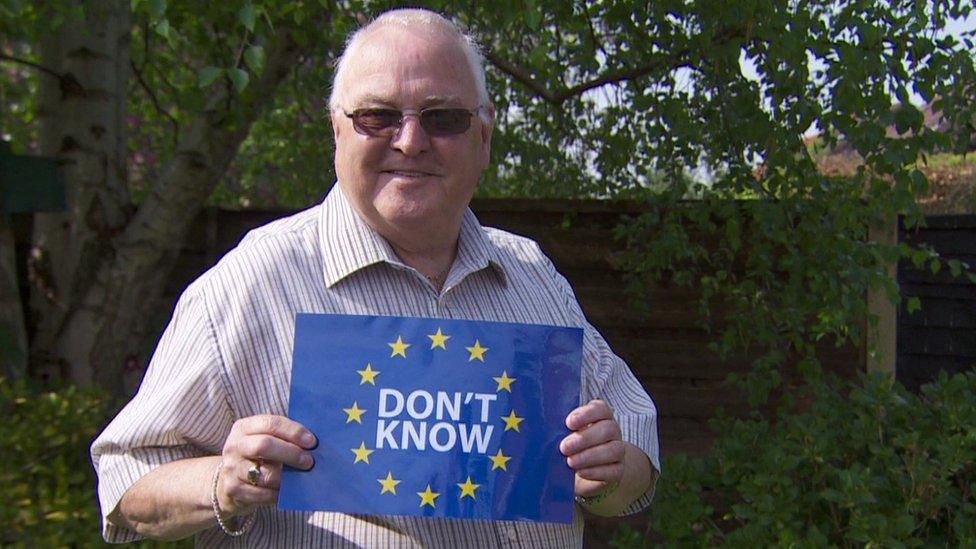Businesses on Anglesey with different views on EU
- Published
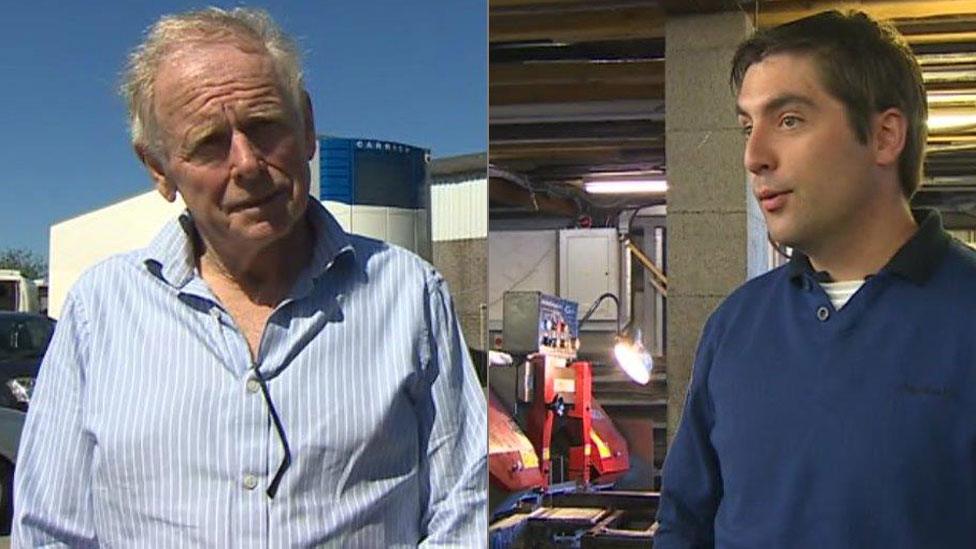
In and out: Anglesey businessmen David Williams and Grant Bond
Would businesses in Wales be better off in or out of the European Union?
I have been talking to two companies on Anglesey. Both have received EU funding but their owners have opposing views on whether to leave or remain.
VOTING TO LEAVE
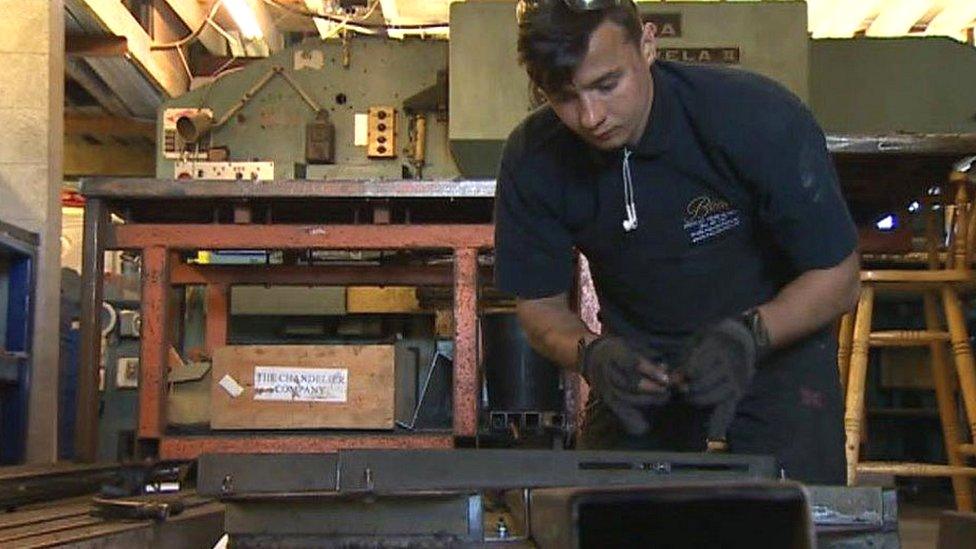
Gabitie's boss says there is too much documentation dealing with EU regulations
Gabitie Group employs eight people in Holyhead. It started in 2004 as an e-commerce company selling bedding, silk clothing and chandeliers but has diversified into making fabricated steel buildings, staircases and mezzanine floors.
Most customers are in the south of England but it also exports to Australia and New Zealand and across Europe.
Owner Grant Bond was undecided until recently but is now voting to leave, saying there was too much interference from the European Union.
He believes Brexit might have a short term impact but in the long term be beneficial if it means less red tape for small business.
"On the face of it looks like it will have negative effect because it looks likely for a year or two we might face recession or financial issues," he said.
"But in the long term, the policies and bureaucracy of the EU are harming the business. A lot of what we have to do has to be up to standards and regulations which change almost on a daily basis. A lot of which doesn't make a lot of sense, as I'd argue British standards are often the best worldwide."

STILL NOT SURE
But Gabitie warehouse assistant Dale Murphy said he was undecided and said the campaigns were not really explaining the issues to young people.
"When you get the likes of Boris Johnson and David Cameron not agreeing on something, I don't know who to go with.
"I'll come to a conclusion but it's confusing - we don't know what the effects are going to be on us in the long run and this is something we have to think about because it's a big choice."

VOTING REMAIN
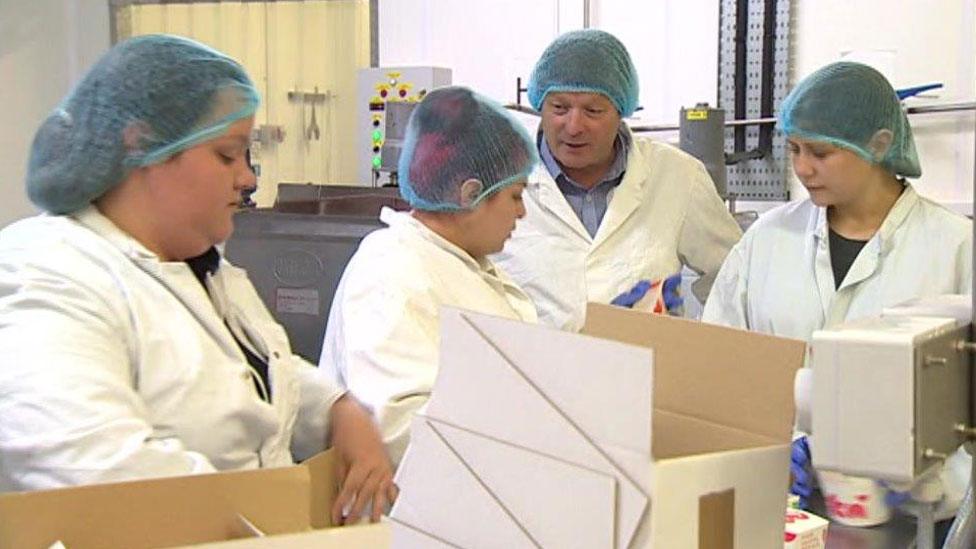
Plas Farm exports frozen yoghurt to Europe - including Germany.
David Williams, owner of Plas Farm Dairies , externalin Gaerwen, started his business in 1987 making frozen yogurt, ice cream and salads and employs 24 people.
The company depends heavily on selling its goods on the continent with 40% of its trade to the rest of the European Union while only 5% goes to the rest of the world.
Mr Williams said there was regulation in food production wherever they exported to in the world.
"It would be very damaging to our business if we left Europe because we work very closely with our customers in Europe. It's very much a partnership and it would be a blow to leave.
"Hopefully we'd keep as much of it going as we can but there are likely to be some levies. If you think bureaucracy is bad in Europe, try selling to China and India; in my experience it's much worse.
"I think it's really important to the financial well being of this area in Wales; the home market isn't very strong, the population isn't very big, we need exports. And the idea we can build them up from outside Europe in that short time is ridiculous."
Businesses' approach to EU membership may well come down to the sector they work in and the markets they sell in though uncertainty is always a concern.
Polls suggest that companies tend to be in favour of remaining but businesses do not have a vote - so it will come down to individuals what they mark on their ballot papers on 23 June.
- Published31 May 2015
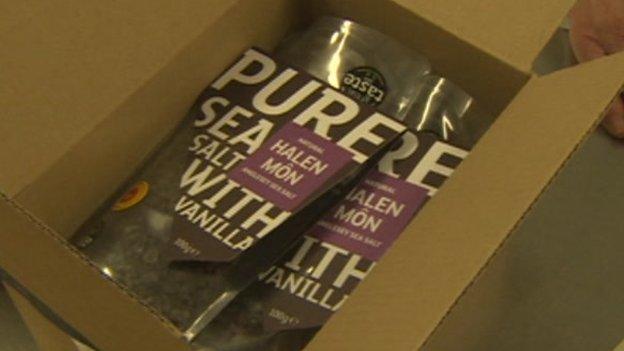
- Published2 June 2016
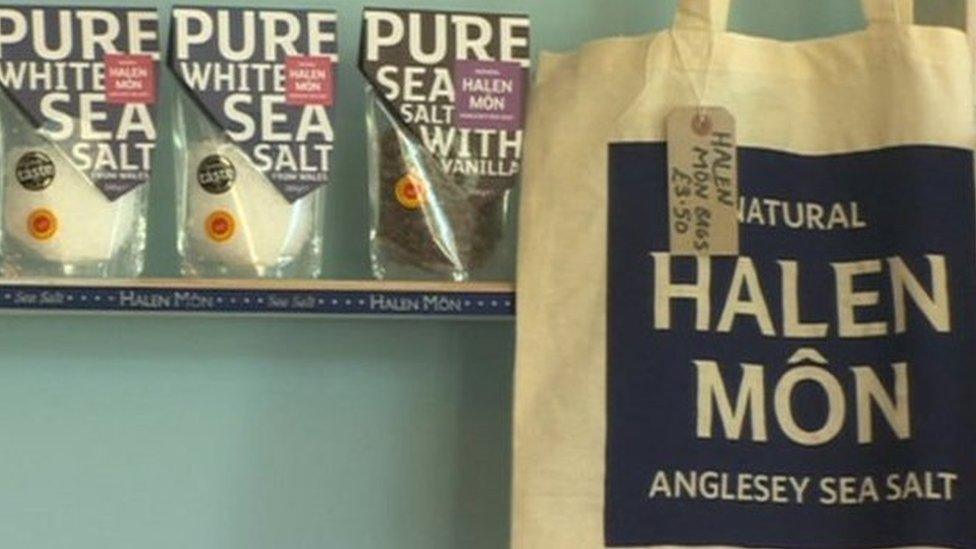
- Published2 June 2016

- Published2 June 2016

- Published1 June 2016
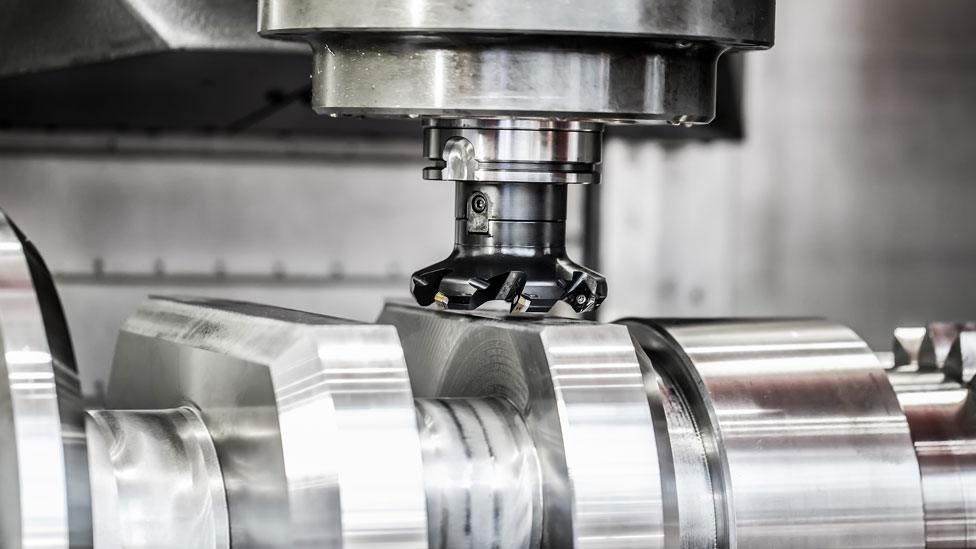
- Published1 June 2016
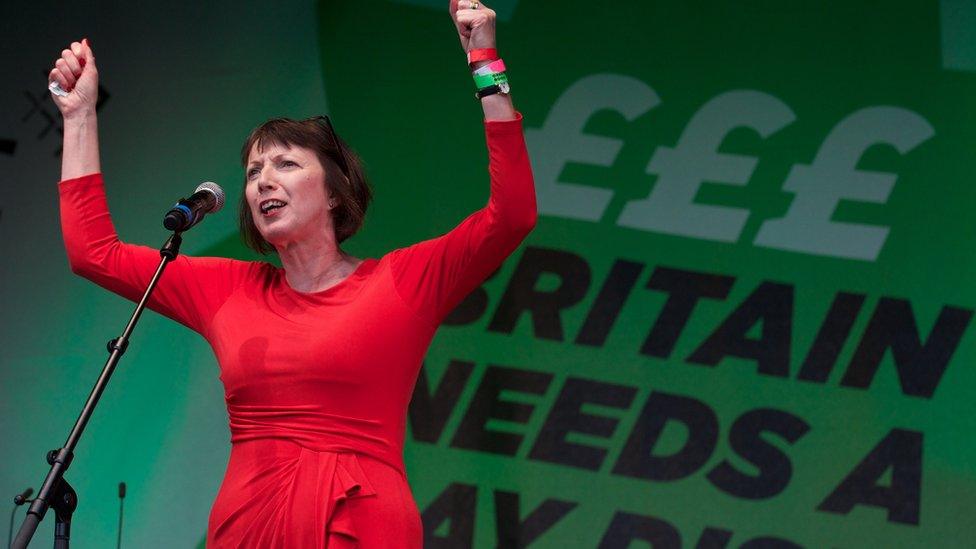
- Published2 June 2016
